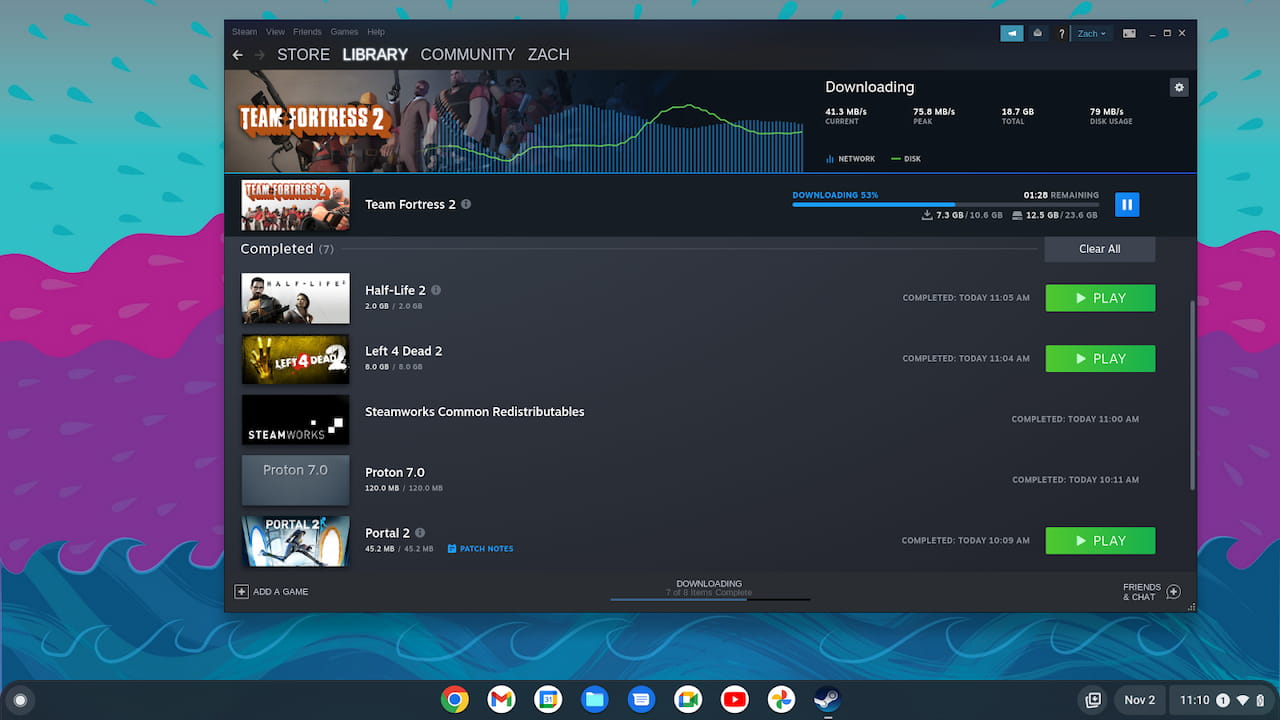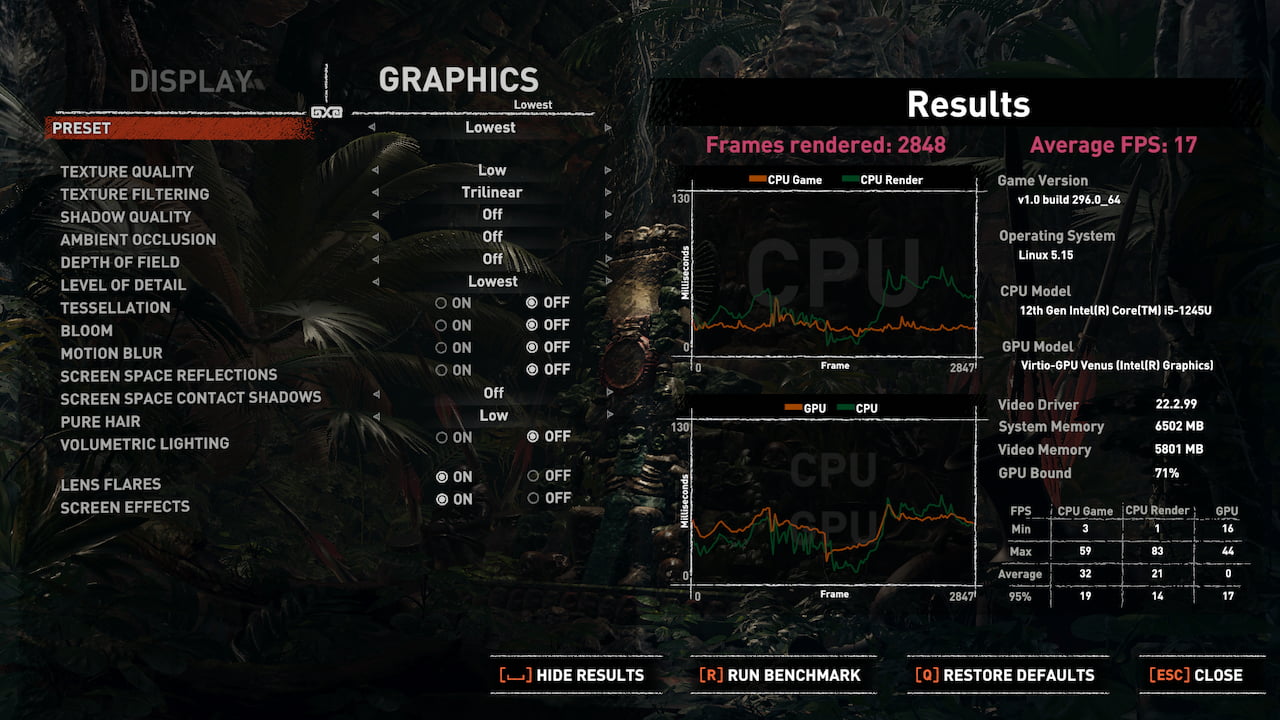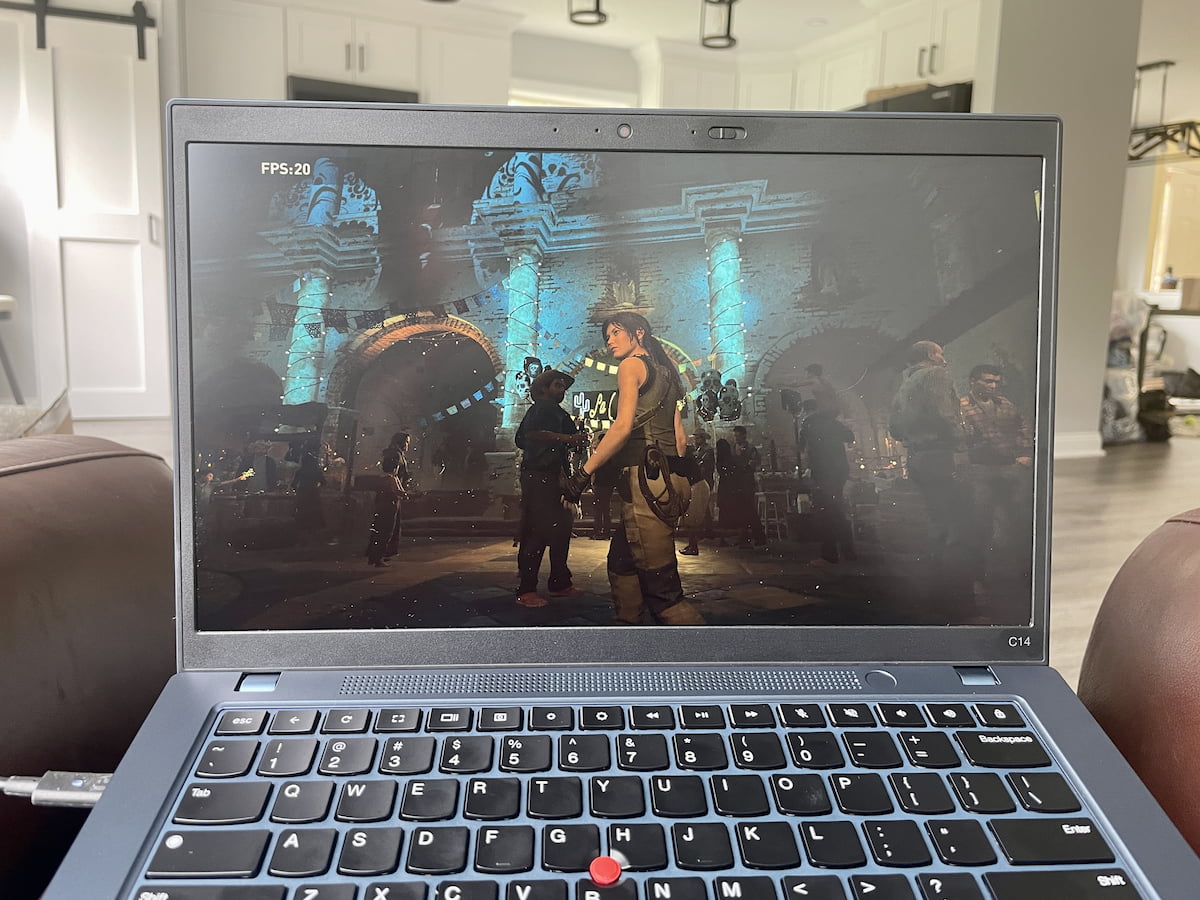As expected, Steam gaming on Chromebooks is moving forward from alpha to beta status. Google today announced that ChromeOS 108 brings Steam to more Chromebooks and moves the effort into the beta stage. Chromebooks with Ryzen 5000-C and Intel Core i3 CPUs are now supported, tripling the list of Chromebooks that can run PC games through Steam.

What Chromebooks can run Steam games with ChromeOS 108?
Here’s the updated list of Chromebooks that support the Steam beta in the latest ChromeOS 108 Beta Channel, now available:
- Acer Chromebook 514 (CB514-1W, CP514-3H, CP514-3HH, CP514-3WH)
- Acer Chromebook 515 (CB515-1W)
- Acer Chromebook Spin 713 (CP713-3W)
- Acer Chromebook 516 GE
- Acer Chromebook Spin 714
- Acer Chromebook Vero 514
- Asus Chromebook CX9 (CX9400)
- Asus Chromebook Flip CX5 (CX5500)
- Asus Chromebook Flip CX5 (CX5601)
- Asus Chromebook Vibe CX55 Flip
- Framework Laptop Chromebook Edition
- HP Elite c640 14 inch G3 Chromebook
- HP Elite c645 G2 Chromebook
- HP Elite Dragonfly Chromebook
- HP Pro c640 G2 Chromebook
- Lenovo IdeaPad Gaming Chromebook 16
- Lenovo 5i-14 Chromebook
- Lenovo Flex 5i Chromebook 14
- Lenovo ThinkPad C14
What else is new with Steam gaming on Chromebooks?
Google isn’t just working on improved game performance and stability with Steam. There are a number of other changes to make the experience better.
The first changes how ChromeOS manages game storage:
One big way is how we manage storage within the Steam on ChromeOS environment. Previously we managed storage based on a game’s reported installation size on Steam. However, this prevented games that download content from outside Steam from being able to access the storage they needed. Our entirely reworked solution uses a sparse disk and ballooning, and has additional benefits like improved file access performance for Proton games.
ChromeOS 108 will also show a power indicator while playing Steam games on a Chromebook so your battery doesn’t die in the middle of a game without you expecting it. Google is also improving power efficiency for Vulkan and DirectX games.
Installing Steam on supported devices is also easier. Just enabling the chrome://flags#enable-borealis setting will put the Steam app in the ChromeOS Launcher.
These are just a few of the main improvements that ChromeOS 108 brings to the Steam beta. A full changelog is available in Google’s blog post.
Keep your expectations in check
Although these are all welcome changes, modern PC titles on Steam typically require discrete GPUs. And no Chromebook to date has such hardware; they all include much less capable integrated GPUs.

As I found out last week when testing Steam on a high-end, relatively new Chromebook, you have to keep your expectations in check.
Even with today’s top-tier ChromeOS laptops, you’re looking at popular titles from 2015 or so that will run well enough. Any games newer than that with advanced graphics requirements will be choppy, laggy, or even unplayable. Note that Google still recommends an Intel Core i5 or higher and 16 GB of memory for the best experience.
This also applies to the new cloud gaming Chromebooks, by the way. They support higher display refresh rates, which is great. But without the GPU power to really push those pixels, you may have to reduce screen resolution or in-game detail levels for a playable native experience.



5 Comments
Rats. The previous big releases – Google Play and Crostini Linux – were available as beta features on the production/stable channel. Meaning that you didn’t need to switch to the beta channel to get them, but rather you only had to enable it in the settings. (Technically you still have to enable Crostini Linux in the settings, but eh.) Was hoping that they were going to do this the same way, particularly since as with Linux and especially Android they were only available on a small subset of Chromebooks initially (though granted it was not limited to higher CPU and RAM configurations, it was just that some boards couldn’t support them for some reason).
But enough of my complaining, of which I do a lot on here. It was clear that they were determined to get this feature into beta in 2022 and they got it done. Good for them! Now all we need is hardware to really take advantage. An AMD Ryzen 5 6600 Chromebook – or Ryzen 7 6800 Chromebox with upgradeable RAM – in 2023 please!
So, how much does Google pay you for all your whitewashing and glowing praise? I’m serious – I used Windows professionally for 30 years, and Unix before that. And I’ve never seen such a poorly managed product. All these ‘upgrades’ are not progress, they seldom fix anything – they are sideways distractions that replace one set of defects with another, all without actually delivering on advertised features.
After I retired, my Dell laptop died, and I unfortunately believed all the hype and outright lies put out by publications such as this one. It’s easy to see why Google’s sales of this product, which rose dramatically at the beginning of covid, have since flatlined (https://www.thurrott.com/mobile/chrome-os/chromebook/270560/report-chromebook-sales-fell-through-the-floor-in-q2) – everyone who bought a Chromebook soon realized they paid good money for a piece of junk, and they’ve warned their friends.
Grade Schoolers are easy to fool. Adults who have used a decent computer before – not so much.
I’m sure you expect me to say that Google isn’t paying me anything. And that’s true. If you believe that or not is up to you. I don’t know of any “outright lies” from this publication and that’s the only one I care about. If you have evidence of such, I’ll gladly review it with you. I’ve also used Windows for a long time, and MS-DOS before that. Sure, Google ChromeOS isn’t perfect. Nor is Windows for many people, or Linux for that matter. I’ve repeatedly said people should use the hardware and software that best fits their needs and if ChromeOS isn’t it, why would I care? I don’t steer people towards a particular platform because it really doesn’t matter to me what people use. It’s their choice, not mine. Feel free to stick around if you’re going to contribute to the community. Comments like this one simply don’t.
“So, how much does Google pay you for all your whitewashing and glowing praise? I’m serious”
Such attacks on your personal integrity are over the line. This “bruce” has already forfeited the right to participate here in the future.
Appreciate that. I considered this to be his first and last warning.